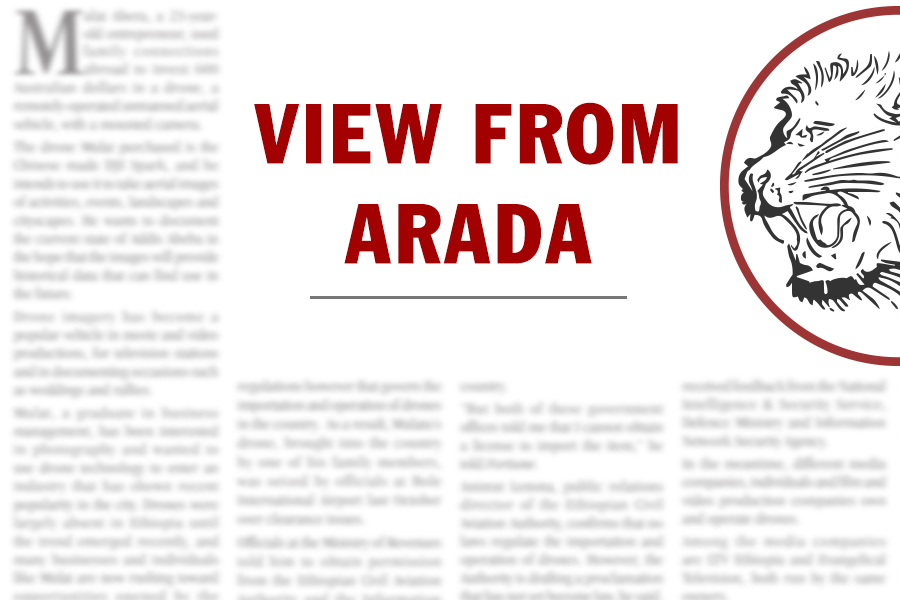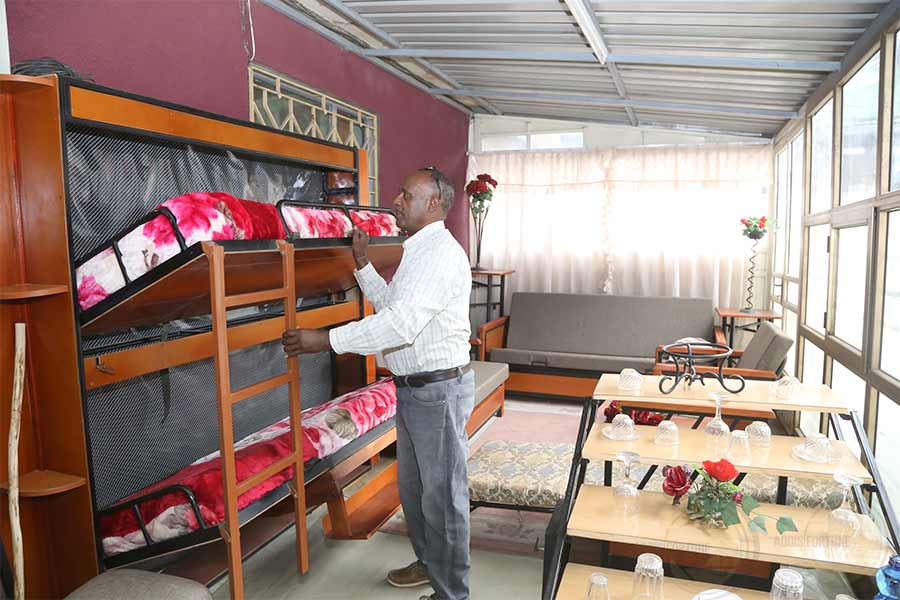
Radar | Feb 12,2022
Sep 8 , 2024
By Kidist Yidnekachew
The recent tragic rape and murder of eight-year-old Heaven Awot has deeply shaken the nation. Her heartbreaking story has left a lasting impact, driving a continued quest for justice for her and countless others who have suffered similar fates. As more stories of such tragedies unfold, it becomes increasingly evident that our society is wrestling with profound issues that demand urgent attention.
In the wake of Heaven's murder, the reactions of those close to the accused have been frustrating and disheartening. The wife and neighbours of the accused have offered a defence that seems both insincere and poorly constructed. While it is crucial to remember that every story has two sides, their defence raises serious doubts.
Adding to this frustration is the state's apparent prioritisation of infrastructure over the protection of its most vulnerable citizens. The emphasis on building roads and installing decorative lights, when compared to the public mourning is disheartening.
Public outrage has also been directed at a journalist who visited the crime scene. Some have viewed his actions as self-serving, with others resorting to personal attacks, including derogatory comments about his appearance and disability. It is disheartening to see such a negative focus on his physical condition rather than the substance of his actions. The incident serves as a stark reminder of the deep-seated stereotypes and biases that persist in our society, particularly regarding disabilities.
The journalist's visit to the crime scene, while controversial, could have been an attempt to underscore the absurdity of the narratives surrounding the incident. Perhaps he sought to expose the implausibility of the defence's claims, emphasising the gravity of the crime and the need for justice. However, the backlash he faced reveals a troubling aspect of our society: the tendency to judge others harshly, often without fully understanding their circumstances. This rush to judgment underscores the pervasive nature of stereotypes and biases, especially those related to disabilities.
Individuals with disabilities usually face difficulties in accessing education, finding employment, and participating fully in their communities. The negative stereotypes they encounter can lead to feelings of shame, isolation, and reduced self-worth. Moreover, the perception of disability as a misfortune extends beyond the individual, affecting their families as well. Feelings of guilt, shame, and self-blame can cause psychological distress and strain family dynamics.
Addressing these harmful stereotypes requires a collective effort to promote inclusivity and compassion in society. Raising awareness and educating others are crucial steps in combating discrimination. Cultivating empathy can help dismantle negative perceptions, encouraging a more inclusive and understanding society. Positive portrayals of people with disabilities in the media can also play a role.
Organisations that advocate for the rights of individuals with disabilities are vital in creating accessible and inclusive communities. Individuals with disabilities themselves can play a crucial role in challenging harmful stereotypes by sharing their personal stories and advocating for their rights. Their bravery in confronting discrimination can inspire others to question and reject negative beliefs, paving the way for a more inclusive society.
While progress has been made in addressing these stereotypes, much work remains to be done. We must confront the deep-rooted biases that continue to harm our most vulnerable citizens and work collectively to ensure that justice, compassion, and understanding are at the forefront of our society.
The pursuit of justice is not just about holding the guilty accountable—it is about creating a society where all individuals, regardless of their circumstances, are valued and protected. Only then can we truly honour the memory of those we have lost and build a future where such tragedies are no longer possible.
PUBLISHED ON
Sep 08,2024 [ VOL
25 , NO
1271]


Radar | Feb 12,2022

Sunday with Eden | Jan 16,2021

Viewpoints | Jul 10,2020

Verbatim | May 04,2019

View From Arada | Nov 09,2019

Commentaries | Mar 23,2024

Agenda | Sep 07,2019

Life Matters | Mar 11,2023

Advertorials | Nov 06,2023

Viewpoints | Aug 26,2023

My Opinion | 131974 Views | Aug 14,2021

My Opinion | 128363 Views | Aug 21,2021

My Opinion | 126301 Views | Sep 10,2021

My Opinion | 123917 Views | Aug 07,2021

Dec 22 , 2024 . By TIZITA SHEWAFERAW
Charged with transforming colossal state-owned enterprises into modern and competitiv...

Aug 18 , 2024 . By AKSAH ITALO
Although predictable Yonas Zerihun's job in the ride-hailing service is not immune to...

Jul 28 , 2024 . By TIZITA SHEWAFERAW
Unhabitual, perhaps too many, Samuel Gebreyohannes, 38, used to occasionally enjoy a couple of beers at breakfast. However, he recently swit...

Jul 13 , 2024 . By AKSAH ITALO
Investors who rely on tractors, trucks, and field vehicles for commuting, transporting commodities, and f...

Jul 5 , 2025
Six years ago, Ethiopia was the darling of international liberal commentators. A year...

Jun 28 , 2025
Meseret Damtie, the assertive auditor general, has never been shy about naming names...

Jun 21 , 2025
A well-worn adage says, “Budget is not destiny, but it is direction.” Examining t...

Jun 14 , 2025
Yet again, the Horn of Africa is bracing for trouble. A region already frayed by wars...

Jul 6 , 2025 . By BEZAWIT HULUAGER
The federal legislature gave Prime Minister Abiy Ahmed (PhD) what he wanted: a 1.9 tr...

Jul 6 , 2025 . By YITBAREK GETACHEW
In a city rising skyward at breakneck speed, a reckoning has arrived. Authorities in...

Jul 6 , 2025 . By NAHOM AYELE
A landmark directive from the Ministry of Finance signals a paradigm shift in the cou...

Jul 6 , 2025 . By NAHOM AYELE
Awash Bank has announced plans to establish a dedicated investment banking subsidiary...